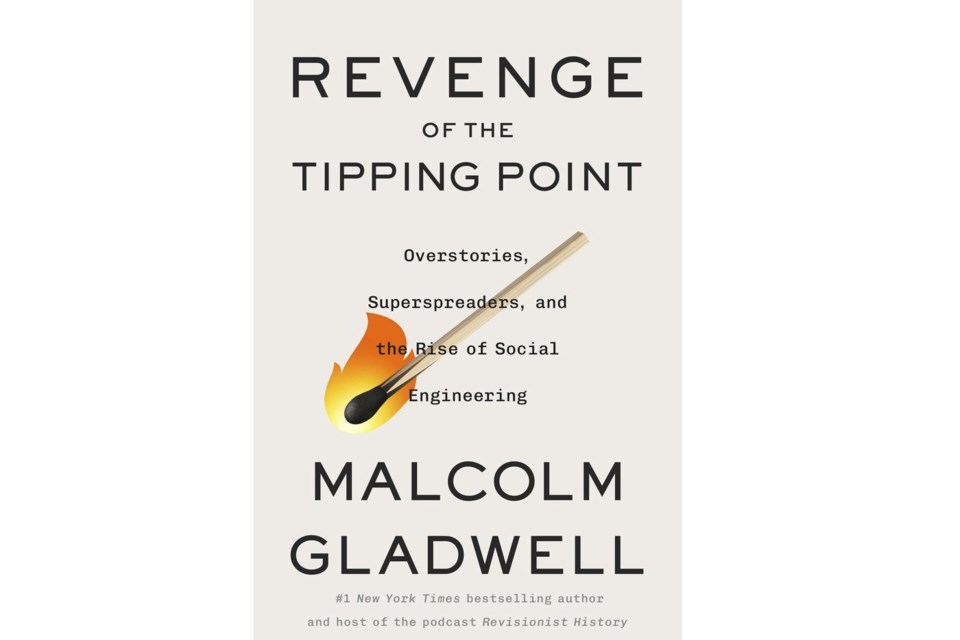It's been nearly 25 years since Malcolm Gladwell published “The Tipping Point," and it's still easy to catch it being read on airplanes, displayed prominently on executives' bookshelves or hear its jargon slipped into conversations. It's no surprise that a sequel was the next logical step.
In “Revenge of the Tipping Point: Overstories, Superspreaders, and the Rise of Social Engineering,” Gladwell is rehashing and rebuilding on the concepts that he first wrote about in 2000. That's not necessarily a bad thing, but it wasn't really necessary either.
Gladwell is revisiting the concept of “social epidemics” and how little things could make a big difference. In his latest book, he's just as concerned about the underside of the tipping point, or what he calls an “attempt to do a forensic investigation of social epidemics.”
The book's style is familiar to anyone who has followed Gladwell's work over the years: an engaging but whiplash-inducing tour of examples ranging from bank robberies in Los Angeles to the opioid epidemic. And it makes sense that a book looking at social epidemics would also look at the COVID-19 pandemic.
A key part of Gladwell's thesis in “Revenge” looks at what he calls the overstory, small-area variations that distinguish one area or community from another and affect the people who live there. It's what may explain differences in Medicare fraud rates among communities or vaccination rates among types of schools.
“Revenge” is entertaining but it's essentially fan service for readers who enjoyed “The Tipping Point." The sequel provides more of the same: nuggets of history and jargon that they soak up on airplanes and toss around during conference table conversations.
___
AP book reviews: https://apnews.com/hub/book-reviews
Andrew Demillo, The Associated Press




